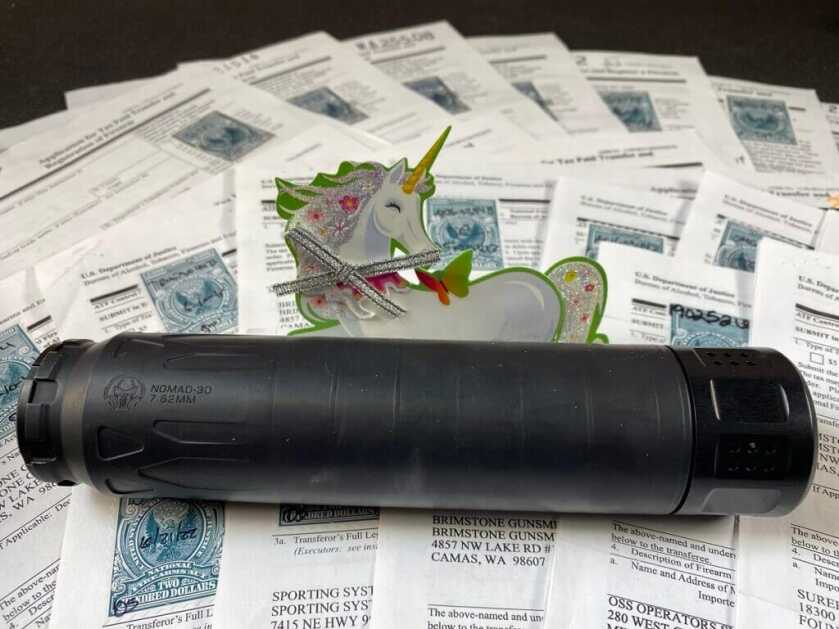
Estimated reading time: 9 minutes
If you have always wanted a suppressor, silencer, gun muffler, or whatever you want to call it, now is the time you have been waiting for. Recent changes in approval processes at the Bureau of Alcohol, Tobacco, and Firearms (ATF) appear to have drastically shortened wait times. If true, this is the biggest thing to hit the suppressor market in a long time. What follows below is not legal advice. It is intended to bring your attention to some very good news.
Available on GunsAmerica Now
Table of contents
Beyond the annoying fact that we even have to get permission to possess a suppressor, the ridiculous wait time for said approval has turned many people away from buying one. If we are to believe what has been said by the ATF, most suppressor approval times will dramatically decrease now and in the future. What was a nine-month wait just a year ago may now be shortened to a few months, weeks, or even days.
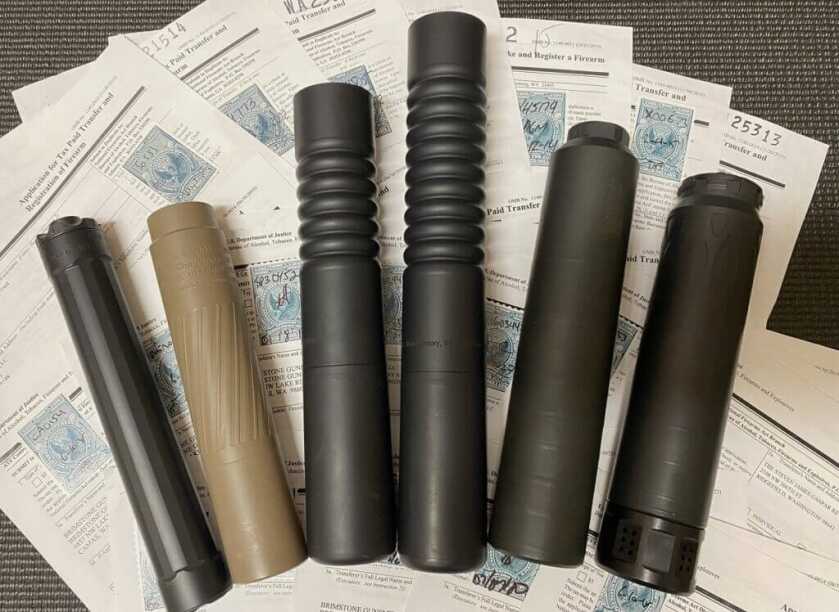
Suppressor Ownership Basics
Anyone who can lawfully own a firearm may purchase a suppressor (except in the last eight holdout states – you can guess them: CA, NY, HI, IL, et al). The buying part is simple: either (1) buy online from the Silencer Shop, Silencer Central, or a similar outfit, (2) buy direct from a manufacturer, or (3) even better support your local gun shop that stocks suppressors and buy one from them. That part is just like buying a gun, except you can’t just pay for the suppressor and walk out with it. No cash and carry. Instead, suppressor possession is regulated by the federal government under the authority of the National Firearms Act of 1934 (NFA).
The National Firearms Act sought to restrict the general population access to such things as hand grenades, machine guns, short-barreled rifles, and other items. It is generally thought that the rationale at the time for such a law was gun violence committed by organized crime.
Many note the St. Valentine’s Day Massacre as a contributing factor, due to the very public killing of seven gang members by a rival gang on February 14, 1929. Two Thompson machine guns were used in the massacre. The NFA called for both an approval process (administered by the ATF) and a then-cost-prohibitive tax of $200 per NFA item. The approval process involves filling out a Form 4 application, paying the tax, and waiting. Some genius back in 1934 decided that suppressors should be likewise regulated and restricted. They probably had something against hearing.
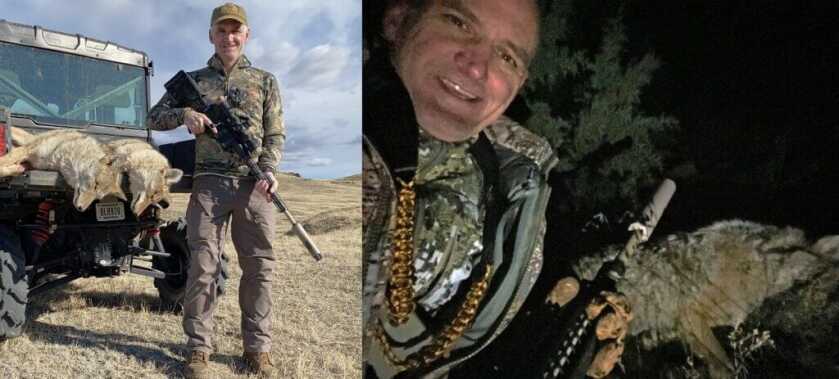
Trusts
Form 4s may be filled out by individuals or Responsible Parties of a Trust. The former is very similar to a standard Form 4473 Firearms Transaction Record except photos and fingerprints are required. The latter method, typically a Revocable Living Trust, has been around for several years and it has certain advantages. Responsible Parties on the Trust may have possession of items that are in the trust, such as suppressors. People may be added and deleted from a Trust.
Not just anyone may be added, but if a person is legally allowed to possess a firearm they will generally be able to be added. You can hire your local attorney to draft a Trust for you, but such Trust documents have become somewhat commoditized. Several entities market standardized Trust documents, e.g., The Silencer Shop, Silencer Central, National Gun Trusts, and some manufacturers such as SilencerCo. This list is not meant to be exhaustive, but illustrative of the many options available today. Much of the language in these Trusts is standardized or nearly so, and this will become important in a moment.
What has Changed at the ATF?
The short version of what changed is it appears some logic was applied to triage Form 4 work processes at the ATF. Form 4s are now being sorted by complexity and those that should be rapidly approved go into the fast lane. The ATF now has four lanes of Form 4s: individual, bundled individual, trust, and bundled trust.
Individual is a Form 4 filled out by an individual for one suppressor. Bundled individual is essentially batch processing of all of a given individual’s Form 4 applications in queue at the ATF – regardless of whether they were submitted together or months apart. Trust is an application that is through a Trust for one suppressor and Bundled Trust is what it sounds like. While Form 4s may be filled out and submitted on paper, nearly all are done electronically. This is a recent development and is an enabler of the new processing speeds.
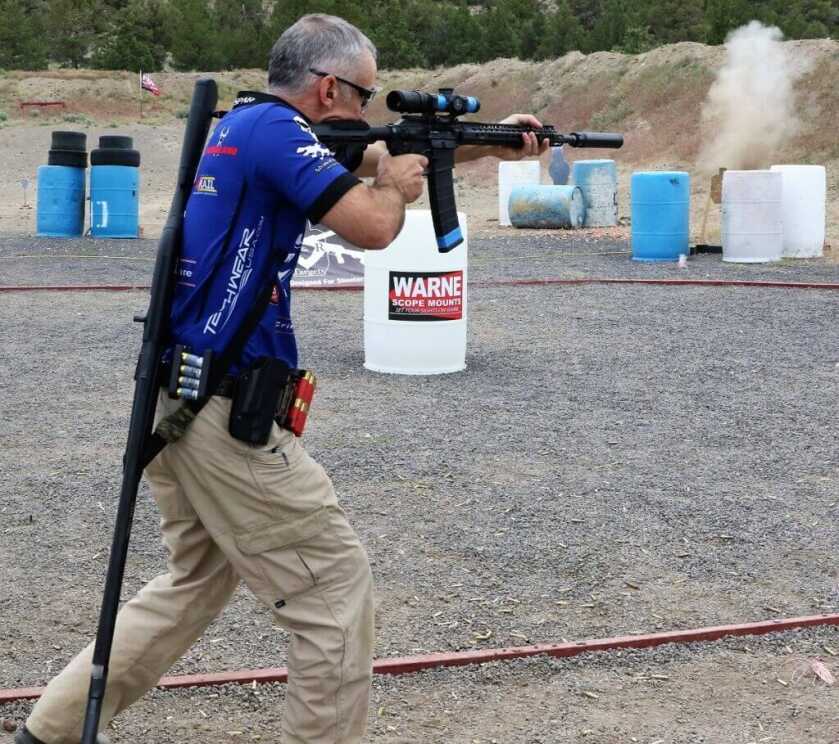
Fast Approval Processing
The ATF has now indicated they will stop doing FIFO, or First In First Out processing. Instead, they will sort applications into the four lanes above for efficiency. Trusts with standard language, such as those commonly available noted above, have already been reviewed and approved by the ATF. Therefore, application reviewers may focus on the required elements instead of reviewing all the Trust’s verbiage. This alone will speed things up.
Additionally, the ATF has indicated they will move quickly to approve any Form 4s (individual or Trust) that have a clean response from the FBI’s National Instant Criminal Background Check System (NICS). Seventy percent of NICS checks quickly come back clean, i.e., “proceed”. These will now go into the “fast lane” of Form 4 approvals. The other 30% of NICS checks, which used to clog all lanes and slow everybody down like a left-lane driver from (insert favorite city/state here), go to the slow lane.
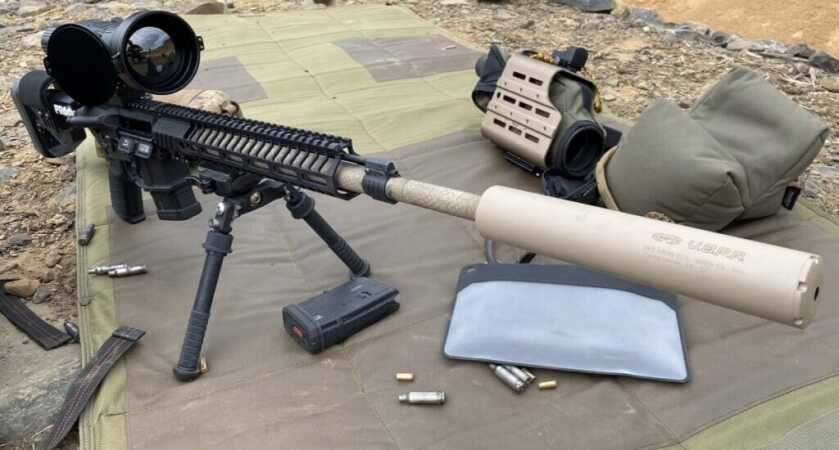
Is the Form 4 the New Normal?
What will the new wait times be? That remains to be seen. The ATF has stated that these decreased approval waits are to be expected going forward. This week claims of Form 4 approvals happening in weeks or days are now popping up everywhere. I can’t validate those claims but can say I had two come back in 5 months just a few weeks ago. If one-month approvals become the norm, it will be interesting to see if that is sustainable given what will certainly be a huge wave of suppressor purchases and Form 4 applications.
Even if the new 4-lane approval highway is real, can it handle more traffic? Another question is whether the incremental tax revenue from all of these new Form 4s will be used to fund more application reviewers. If so, the next question is whether the ATF can maintain this newly attained efficiency. Time will tell.
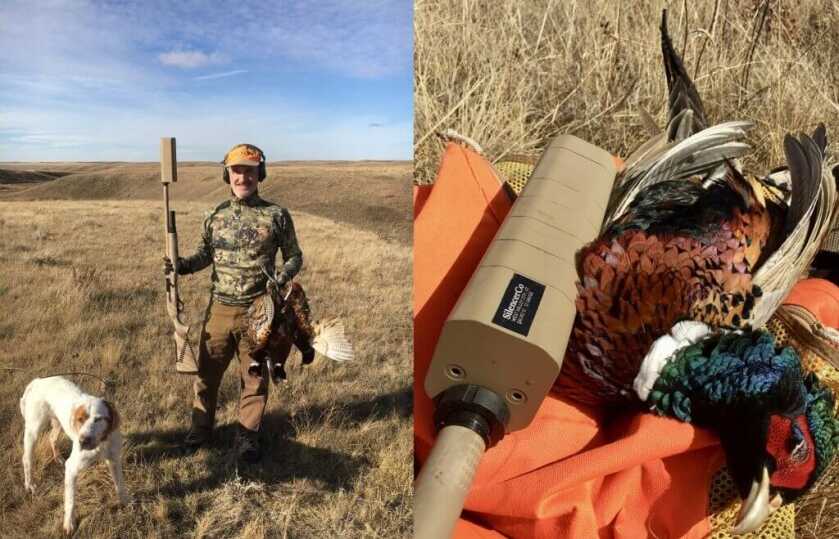
How Did This Happen?
If you have concluded that somehow common sense has infiltrated our federal bureaucracy, then you are also wondering how this could have happened. What sorcery, what voodoo, what stars have aligned to create this miracle of unicorns? The answer appears to be the American Suppressor Association (ASA). At the end of 2023, the ASA coordinated an industry roundtable webinar with the ATF to discuss possible ways of making things better. Many of the ATF changes were a result of this roundtable. I’ve interviewed the ASA president Knox Williams for an article in the past about their efforts.
READ MORE: New Study Highlights the True Culprits of Youth Gun Violence: Poverty and Neglect
I knew they had been doing good work at the state level to help legalize both suppressor ownership and suppressor use in hunting. With these improvements in ATF processing, the ASA is getting results. Other than being a life member of the ASA, I am not affiliated with them. That said, you could spend your money in worse ways than supporting them financially. They even have raffles from time to time as fundraisers.
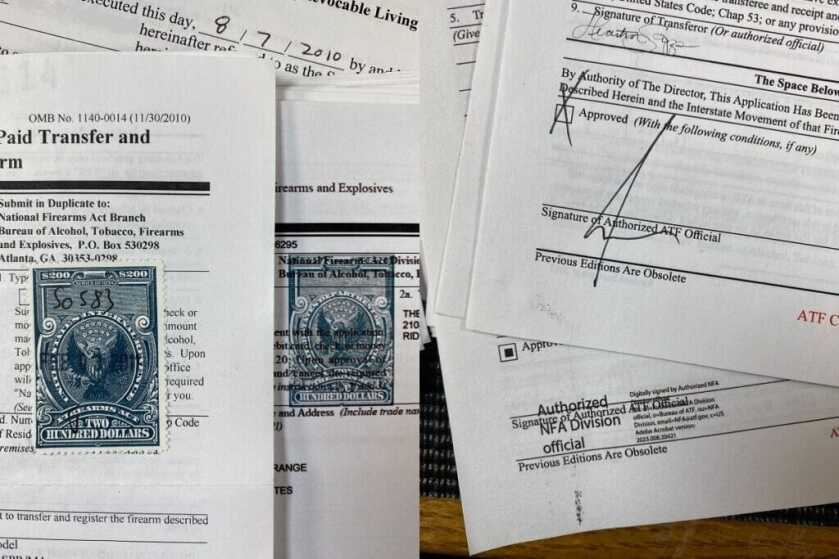
Conclusion on Suppressor Approval
While it appears the ASAs efforts have driven welcome change, the question remains “why would the ATF be interested in doing this at all?” One possibility is the chance that recent second amendment court case victories, such as Bruan, and other pending cases, such Mock v Garland have the ATF worried. They could, or possibly should, be concerned that their livelihoods are threatened by such court cases. For more on these cases I direct the reader to the WA Gun Law YouTube channel. While president William Kirk practices law in Washington state, his videos span the country. They are a great way to stay informed.
Much of the information in this article was derived from an excellent article on the ASA website that may be found here. I encourage readers to go through that article for more details such as how to increase your chances of getting a rapid approval, common mistakes to avoid, etc. While on the ASA website, take a look around and you will find they have a lot of useful information. If you have never shot suppressed you truly don’t know what you are missing. For me it was a one-way door over 15 years ago. Suppressors help with hearing health, and perceived recoil, and they are civilized.
*** Buy and Sell on GunsAmerica! ***

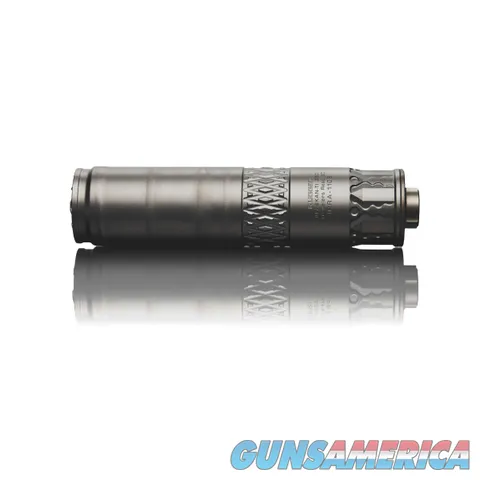
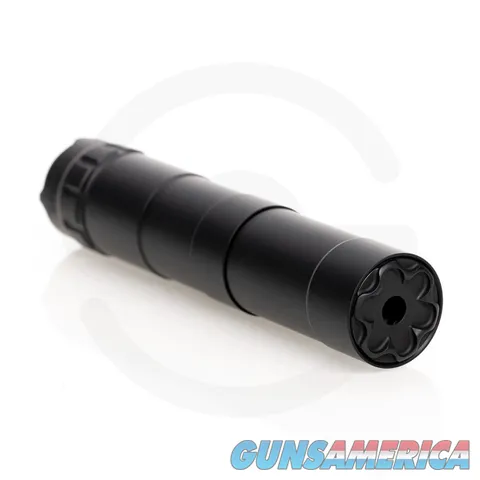
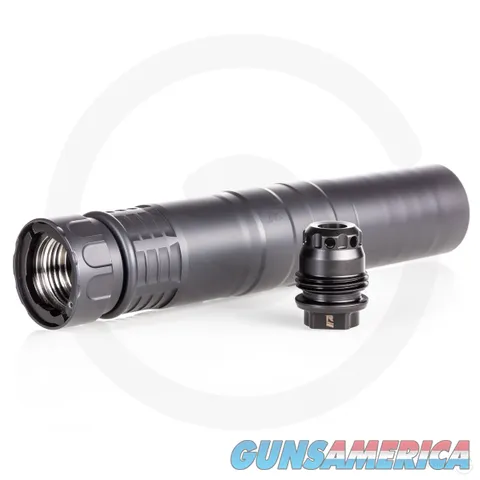
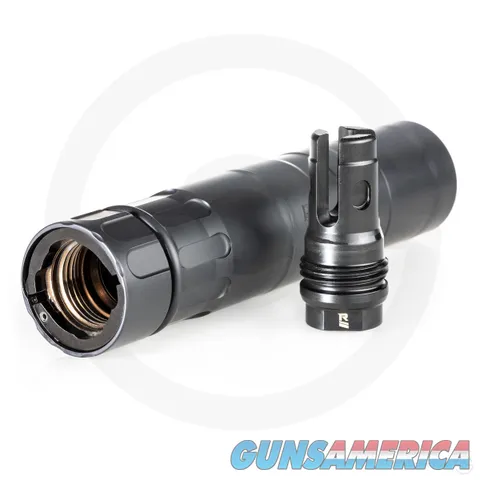
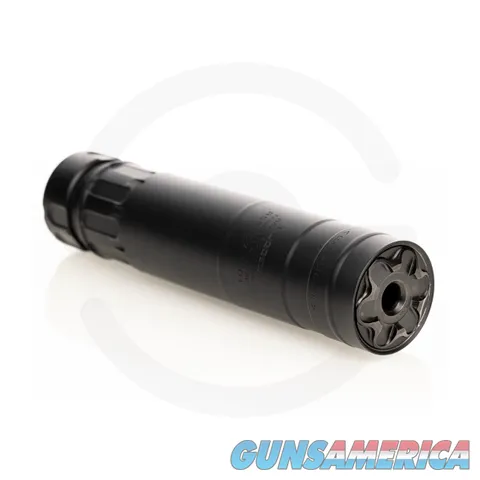
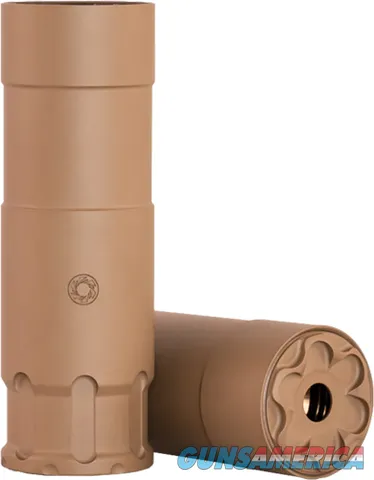
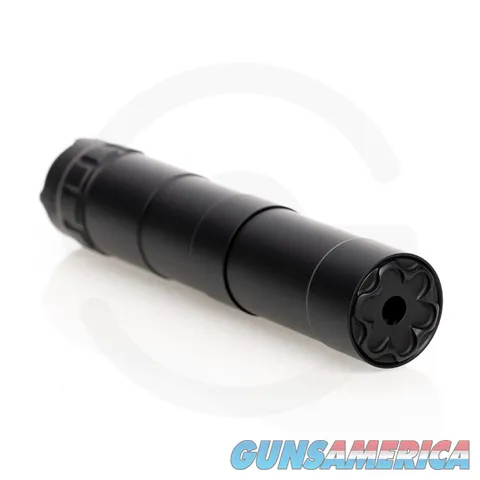
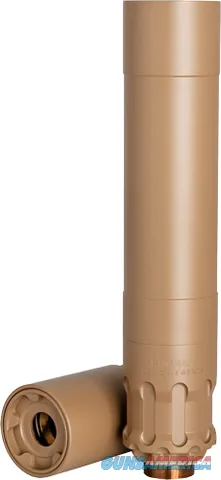

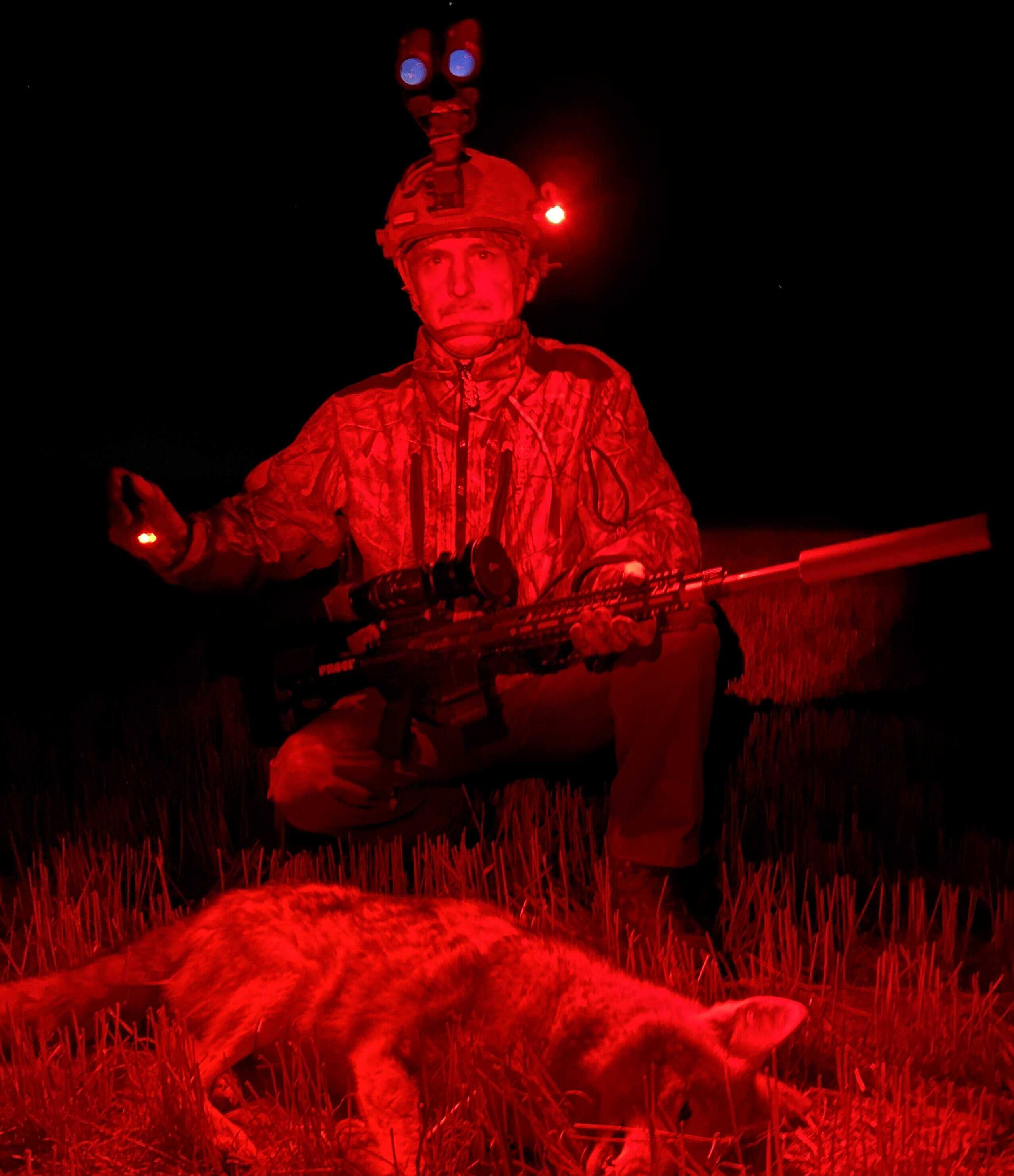
There was an extensive story in American Rifleman a couple decades back talking about gun control, why and where it came from, and the gang wars of the 30’s were the primary reasons. This was in a day when you could buy a Thompson for about $170, a lot of money in the 1930’s, plus all the ammo you could carry. it was advertised as the ‘Rancher’s Friend’, complete with a cowboy on horseback dispatching a pack of coyotes, (the 4 legged kind) with a Cutts compensated blast. In that day, except for gang warfare that impacted civilians little, nobody shot up schools or other venues just to kill people. The Congress of the era, got their primary news from sensationalized newsreels, “Movietone’ being one of them, plus, watching Hollywood movies about gangs. AR Mag reported that the gun control act of 1934, was filled with rhetoric based on what they saw in the newsreels and movies, devoid of any basis in reality, much like today when the biased media we have can get no gun or gun crime fact right. The suppressor got included in the 1934 laws from all the movies that had them depicted, and there were very few, but Congress decided that a firearm that only went, ‘Phhhfft’, or so they were lead to believe, because they were as stupid as they are today, had to be outlawed due to all the people being offed and no one heard the shot.
Clint it is unfortunate that still today many legislators have their understanding of suppressors shaped by movies and the anti-second amendment lunatic lobby. The ASA has been fighting this by hosting suppressor events, inviting and educating congressmen. Most non-gun owners I meet, and many gun owners as well, have a movie-based understanding of suppressors too. However, as more suppressors are produced by more manufacturers and purchased by more gun owners this trend is starting to change. The past 3 years have been much different than the prior 10 in my view. With all the bad 2A news we see on a daily basis, I’ll take what good news I can get!
Be safe and shoot suppressed!
I bought my first can about 13 years ago and it took 12 months for the fed to complete the paperwork. Ridiculous! Two more cans and an SBR over the next couple of years had the same results, and that was after spending $1000 for a lawyer to prepare a trust because I was told by the BATF that was the fastest way for approval, at that time.
Since retiring, I love going to the range for a day of ‘plinking’ and can’t imagine doing so without using a suppressor. Unfortunately my hearing is already permanently damaged from years of hunting before suppressors became more readily available, but hopefully young shooters will take advantage of the accessibility to suppressors and use them.
I would like to purchase one more and hopefully this information about streamlining the process is correct. Pardon my cynicism, but it’s really hard to imagine the fed going ANYTHING to actually HELP the shooting community. Are they afraid for their jobs? Doubtful!
I agree about younger shooters taking advantage of this opportunity LJ! One reflexive shot at a coyote using an AR with a muzzle brake really did a number on my hearing. That sealed it for me and I got my first can.
Also of note, I visited my local FFL/SOT over the weekend and they verified the approval times have accelerated significantly. Their current record is five hours. You read that correctly. Five hours!